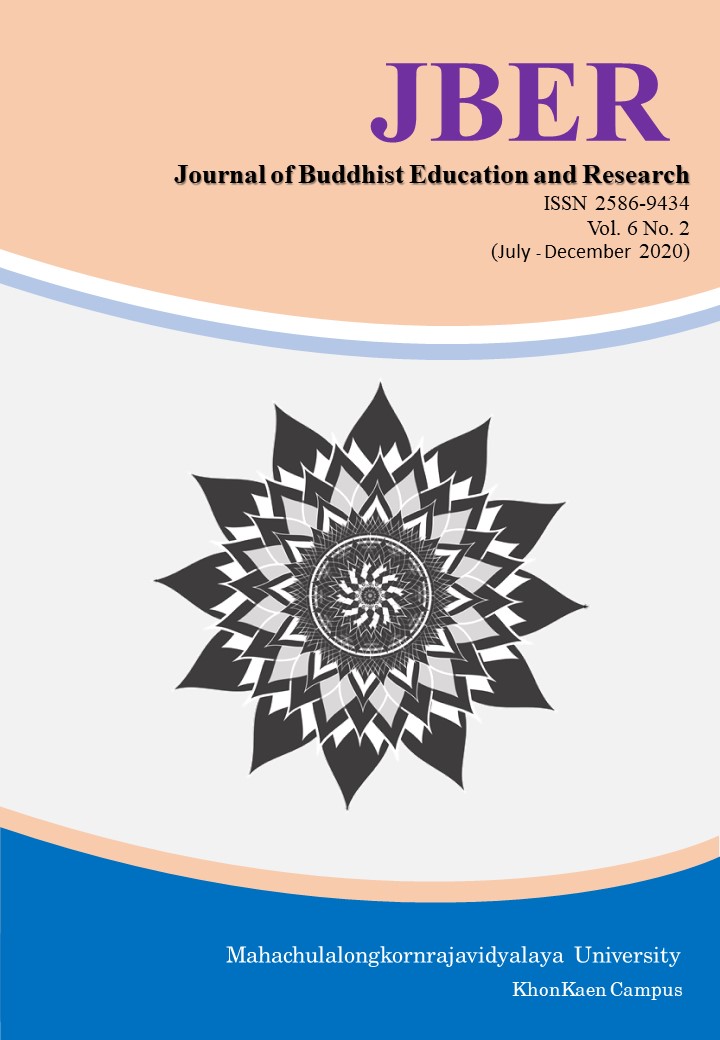THE COLLECTING AND STUDYING OF PERFORMING ARTS KNOWLEDGE IN CHIANG MAI
Keywords:
Wisdom, Performing arts, Culture, Chiang Mai ProvinceAbstract
This research aims to study the performing arts knowledge in Chiang Mai province, and to collect and publish the performing arts knowledge of Chiang Mai province. The researchers studied the data from academic documents and field data storage using tools such as interview, questioning, and observation from folk philosophers in Chiang Mai Province. Then the results were combined and analysed according to the objectives. The result found that there are 20 districts have the outstanding performing arts, and there are not found the specific performing arts in 5 districts. The result shows that there are 5 types of performing arts found in 20 districts such as 1) Northern-folk dance and traditional Tribal dance, 2) drumming dance, 3) Singing the folk fiddle, 4) Lanna folk bands, and 5) Lanna folklore and tribal play.
Through an analysing of the role of performing arts in society showed that there are three objectives for using performing arts in Tourism such as 1) Performing arts for hospitality 2) Performing arts to promote local tourism and culture 3) Performing arts as a source of community activities for learning. The study found that the performing arts of each district represented the local identity and identity of the folk artists. There are both original and reinvented performing arts according to the changing of the era, the education system, local economic, and social development. The performing arts of Chiang Mai was born from the roots of thinking, the creation of knowledge, ability, wisdom of the folk artists and local philosophers by passing down from generation to generation. Some folk artists have created learning centers in order to convey the wisdom of performing arts and to create a modern or a contemporary performing arts based on local wisdom in order for disseminating the performing arts of each district to remain and be known to youth, Thai people and foreigners.
References
พรทิพา บุญรักษา. (2559). ศิลปะการแสดงล้านนา. สืบค้น 11 พฤษภาคม 2562, จาก http://poppy-porntipa.blogspot.com/2016/09/blog-post_60.html
ล้านนาคดี. (2551). เอกลักษณ์ล้านนา. สืบค้น 13 พฤษภาคม 2562, จาก http://ich.culture.go.th/index.php/th/ich/performing-arts/236- performance
วิทยาลัยนาฏศิลป์เชียงใหม่. (2561). ประวัติความเป็นมาวิทยาลัยนาฏศิลป์เชียงใหม่. สืบค้น 25 พฤษภาคม 2562, จาก http://cdacm.bpi.ac.th/index/hna_rk.html
สารานุกรมเสรี. (2562). จังหวัดเชียงใหม่. สืบค้น 15 พฤษภาคม 2562, จาก https://th.wikipedia.org/wiki/%E0%B8%88%E0%B8%B1%E0%B8%87%E 0%B8%
สายสวรรค์ ขยันยิ่ง. (2543). พระราชชายา เจ้าดารารัศมี กับนาฏยศิลป์ล้านนา. วิทยานิพนธ์ปริญญามหาบัณฑิต.สาขาวิชานาฏยศิลป์ไทย. จุฬาลงกรณ์มหาวิทยาลัย.
สำนักงานราชบัณฑิตยสถาน.(2555). ความหมายของศิลปะ. สืบค้น 12 พฤษภาคม 2562, จาก http://www.royin.go.th/?knowledges=%E0%
สำนักงานวัฒนธรรมจังหวัดเชียงใหม่. (2561). มรดกภูมิปัญญาทางวัฒนธรรมจังหวัดเชียงใหม่. สืบค้น 13 พฤษภาคม 2562, จาก https://www.m-culture.go.th/chiangmai/
_______. (2561). ศิลปะการแสดงจังหวัดเชียงใหม่. สืบค้น 13 พฤษภาคม 2562, จากhttps://www.mculture.go.th/chiangmai/ewt_news.php?nid
องค์กรมรดกภูมิปัญญาทางวัฒนธรรม. (2562). ศิลปะการแสดง. สืบค้น 18 พฤษภาคม 2562, จาก http://ich.culture.go.th/index.php/th/ich/performing-arts
_______. (2562). ศิลปะการแสดงล้านนา. สืบค้น 17 พฤษภาคม 2562, จาก http://ich.culture.go.th/index.php/th/ich
_______. (2562). ซอล้านนา. สืบค้น 20 พฤษภาคม 2562, จาก http://ich.culture.go.th/index.php/th/ich/performing-arts/236-
อนุกุล โรจนสุขสมบูรณ์. (2549). แนวคิดทฤษฎีการฟ้อนล้านนาแบบใหม่. วิทยานิพนธ์ปริญญาดุษฎีบัณฑิต.สาขาวิชานาฏยศิลป์ไทย. จุฬาลงกรณ์มหาวิทยาลัย.
อาริยา. (2562). นาฏศิลป์พื้นเมือง. สืบค้น 13 พฤษภาคม 2562, จาก https://sites.google.com/site/reiynnatsilpkhruxariya/natsilp-phun- meuxng
Blogger (2560, 30 กันยายน). ศิลปะล้านนา. สืบค้น 11 พฤษภาคม 2562, จาก https://civilizationofsoutheastasia.blogspot.com/2017/09/blog- post_30.html





